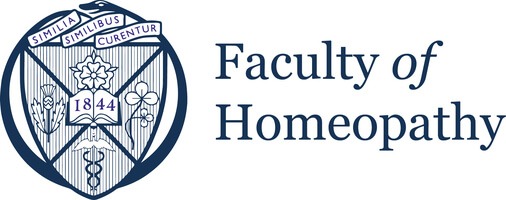The B vitamins have a wide and varied range of functions in the human body. Most B vitamins are involved in the process of converting blood sugar into energy. Diets rich in these vitamins are particularly important for pregnant women as well as breast-feeding ones and for people who require more energy, such as athletes and heavy-labour workers.
Deficiencies of B vitamins are uncommon in the UK, but when they occur they usually involve several B vitamins because many of them come from the same food groups. Alcohol interferes with the body’s absorption of these vitamins. Elderly people are at risk for vitamin B deficiencies because they often have inadequate diets, and prescribed medications may interfere with B-vitamin absorption.
As the B vitamin is water soluble vitamin and are eliminated in the urine, toxic reactions from oral administration of most B vitamins are extremely rare, the exceptions being niacin and B6. It should be noted that B15 (pangamic acid) and B17 (laetrile) are neither vitamins nor nutrients. These are chemicals that are highly dangerous and have no proven nutritional or other value.
Thiamin is essential for converting blood sugar into energy and is involved in metabolic activities in the nerves, heart and muscles, and in the production of red blood cells. Thiamin is found in almost all foods, but the best source is pork. Good sources of thiamin include dried fortified cereals, oatmeal, corn, nuts, cauliflower and sunflower seeds. Recommended RDA is 1.2 mg per day for men and 1.1 mg for women. Thiamin supplements for people with normal diets and good health are unnecessary.
Severe vitamin B1 deficiency, known as beriberi, is rare in the UK but can occur in alcoholics, in severely malnourished people, or in people who receive long-term dialysis or intravenous feeding.
Symptoms may include visual disturbances, paralysis, staggering, loss of sensation in the legs and feet, psychosis and congestive heart failure. No toxic effects have been reported for thiamin.
Like thiamin, riboflavin is important in the production of energy. Some dietary sources are liver, dried fortified cereals and low-fat yogurt. The recommended DRI for adults is 1.7 mg.
Deficiencies affect the skin and mucous membranes, which may be seen as cracks on the lips or corners of the mouth, eczema of the face and genitals, a burning sensation on the tongue, or eye irritation.
Supplements for people with normal diets and health are unnecessary. Large doses of riboflavin are generally considered to have no toxic effects, but one study has indicated that high consumption of vitamin B2 may increase the risk of stomach cancer. (In the same study, vitamins B1, B3 and B6 were protective.)
Niacin, also known as nicotinic acid, helps break down blood sugar for energy and also acts as a vasodilator, which means it widens blood vessels and increases blood flow.
Dietary sources are mackerel, swordfish, chicken, veal, fortified dry cereals, pork, salmon, and beef liver. Current DRI recommendations are 20 mg.
Niacin may be prescribed to improve cholesterol levels, but supplements are unnecessary in people with normal health and diets.
A deficiency of niacin causes pellagra, a chronic disease that can cause eczema, intestinal and stomach distress, depression, headache, thinning of the hair and excess saliva production. Anaemia may occur, although this is probably due to an accompanying deficiency in folic acid.
Even mildly high doses of niacin can cause hot flushing of the face and shoulders, headache, itchiness and stomach problems. Some individuals have reported heart disturbances and temporarily lowered blood pressure.
Large doses may produce ulcers, gout, diabetes and liver damage, which are usually reversed when high doses are discontinued.
Pantothenic acid, as with many B vitamins, is involved in metabolism of fats, carbohydrates and proteins, as well as in production of steroid hormones and other important chemicals.
Dietary sources are whole grains, beans, milk, eggs and liver. Recommended adequate intake (AI) is 4 to 7 mg.
Vitamin B supplements are unnecessary in people with normal health and diets.
Deficiency is unlikely unless there are also other B-vitamin deficiencies. Symptoms of B5 deficiency include abdominal distress, a burning sensation in the heels, and sleep problems.
Although no toxicity has been reported in humans, high doses have caused liver damage in rats.
Vitamin B6, or pyridoxine, affects over 60 proteins in the body; most importantly, those that play a role in the nervous system, in red and white blood cell production and in heart disease.
Food sources of B6 are meats, oily fish, poultry, whole grains, fortified dry cereals, soybeans, avocados, baked potatoes with skins, watermelon, plantains, bananas, peanuts and brewer’s yeast. Current DRI recommendations are 2 mg in all adults, although for heart protection some experts recommend 3 to 6 mg.
Deficiencies are very uncommon but can cause skin problems and nervous system disorders, including impaired memory and concentration. B6 deficiency may also increase risk of kidney stones.
In rare cases, infants are born unable to metabolize. In such cases seizures or convulsions can occur, and vitamin B6 must be administered. Deficiency is associated with increased levels of the chemical homocysteine, which has been associated with heart disease, birth defects and possibly Alzheimer’s disease and dementia.
A diet rich in fruits and vegetables may reduce homocysteine levels. Very high doses (2000 mg per day) can cause nerve damage with symptoms of instability and numbness in the feet and hands, which may be permanent in some cases.
An excess of B6 also reduces the effects of L-dopa, the drug used to treat Parkinson’s disease.
Vitamin B12 is essential for the production of blood cells, manufacturing genetic material and for healthy functioning of the nervous system. The only natural dietary sources of B12 are animal products, meats, dairy products, eggs and fish (clams and oily fish are very high in B12), but as with other B vitamins, B12 is added to commercial dry cereals. The RDA is 2.4 mcg a day.
Deficiencies are rare in young people, although the elderly may have trouble absorbing natural vitamin B12 and may require synthetic forms from supplements and fortified foods.
Symptoms of mild B12 deficiency include memory loss, instability, disorientation, decreased reflexes and possibly hearing loss. Deficiencies also elevate homocysteine (see Vitamin B6, above).
When vitamin B12 deficiencies are due to lack of a protein known as gastric intrinsic factor (a genetic defect), pernicious anaemia can develop. This serious disorder must be treated with injections of vitamin B12 to avoid neurologic damage.
Vitamin B12 is mainly found in animal products, especially meat and dairy products. Luckily for those on vegans diets, fortified foods can be good sources of this vitamin, too.
A commonly consumed fish, tuna, is jam-packed full of nutrients, including protein, vitamins, and minerals. Containing high concentrations of B12, according to Healthline a 100-gram serving of cooked tuna provides 10.9 mcg of vitamin B12. That’s 453% of your daily recommended amount.
And if tuna steaks aren’t your thing, don’t worry, canned tuna also contains a good amount, with approximately 165grams of tuna in water containing 115% of your daily recommended amount.
Milk and dairy products like yoghurt and cheese are excellent protein sources and several vitamins and minerals, including vitamin B12.
Cheese is also a rich source of vitamin B12. One large slice (22 grams) of Swiss cheese can contain about 28% of the DV. Studies have shown that the body absorbs vitamin B12 in milk and dairy products better than the vitamin B12 in beef, fish, or eggs.
Another great source of B12 is eggs. Two large eggs (100 grams) supply about 46% of the DV for vitamin B12, plus 39% of the DV for vitamin B2.
Research has shown that egg yolks have higher levels of vitamin B12 than egg whites and that the vitamin B12 in egg yolks is easier to absorb. Therefore, it’s recommended to eat whole eggs instead of just their whites.
Beef is an excellent source of vitamin B12. One grilled flat iron steak (about 190 grams) provides 467% of the DV for vitamin B12.
Should you be taking vitamin B12 supplements?
B12 supplements are usually recommended for people at risk of deficiency, like older adults, pregnant or breastfeeding women, vegetarians and vegans, individuals with intestinal problems, and those who have had stomach surgery.
Research has shown that vitamin B12 taken by mouth and muscular injection effectively restores vitamin B12 levels in people who are deficient in the vitamin. Our IV drips can give you a much-needed boost of B12 and provide you with the energy you need to fight off tiredness, especially post-workout.

Consultant in General Internal Medicine (GMC reg. number: 7541548) and Specialist in Complementary Cancer Care
MBBS, MRCIM (Spain), MSc Homeopathy, MFHom, Master practitioner in Ericksonian Hypnotherapy and Neurolinguistic Programming, MSc in Nutrition
Integrated medicine Doctor and Holistic Medicine Practitioner



